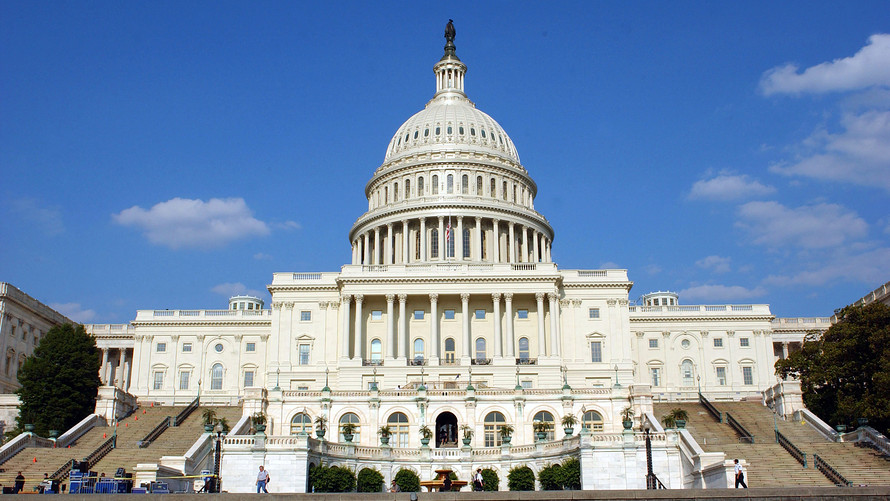The Honorable Jerrold Nadler
The Honorable Doug Collins
Dear Chairman Nadler, Ranking Member Collins, and Members of the House Judiciary Committee:
The Institute for Free Speech[1] writes in response to a provision of H.R. 1 related to the Supreme Court decision, Citizens United v. FEC, scheduled for discussion by this Committee on January 29, 2019. From the moment the ruling was announced in 2010, Citizens United has been wildly misconstrued. H.R. 1’s factual findings related to Citizens United, unfortunately, continue this trend.[2] The Institute for Free Speech seeks to correct some of these mistakes and provide members of this Committee an accurate educational resource describing the Court’s holding in Citizens United and placing the case in context.
Citizens United upheld the First Amendment. If the Court would have ruled differently, the government would have the power to ban books and movies about candidates, if produced and distributed by corporations.
The Citizens United case arose because the Federal Election Commission (FEC) attempted to prohibit a nonprofit corporation from advertising and distributing a film about then-candidate Hillary Clinton. Threatened with legal action by the Federal Election Commission if it aired the movie or advertisements for the movie – simply because it criticized a politician close to an election – Citizens United decided to sue to vindicate its First Amendment right to show the film. The Supreme Court rightly found that the government cannot ban books and movies that were made using corporate funds, simply because they criticize a candidate close to an election. Since virtually all books and movies are produced and distributed by corporations, this ruling was an important victory for free speech and press rights.
While outside spending has increased since the Citizens United decision, it remains dwarfed by candidate and party spending.
Much of the current criticism of Citizens United comes from its effect of increasing so-called “outside spending” – spending that occurs independently of candidates or parties. Campaign speech does not belong only to candidates and parties. The American people have a right to speak, and they are not outsiders. It is better for citizens to hear from all perspectives. Nevertheless, candidate spending and party spending still dominate campaigns. In 2018, $1.1 billion was spent by all independent, non-party groups. Candidates and parties spent nearly four times that amount, $4.1 billion.[3] It’s simply not true that independent groups have an “outsized” influence on campaigns.
Citizens United has had a positive effect on our democracy.
Those in favor of greater campaign finance restrictions often claim that, since Citizens United, our democracy has suffered. There is no evidence for this claim. Since the decision, we have seen wave elections for both Democrats and Republicans in the House, we have seen both Democratic and Republican control of the Senate, and Americans have re-elected a Democratic president and elected a Republican president. The 2018 election also saw record voter turnout in a midterm election. If Citizens United has had any effect on democracy, it is certainly not visible in electoral outcomes; it appears the American people are still deciding elections and doing so with enthusiasm.
It is a bad idea for the government to ensure “political equality.”
Calls to overturn Citizens United, like that in H.R. 1, often seek to eliminate the current Supreme Court justification for campaign finance restrictions – corruption and its appearance – and replace it with the idea that Congress should be able to restrict spending to further “equal” voices. The First Amendment is not – and never has been – conditioned upon a level playing field. In fact, there has never been a time in American history where everyone spoke equally and was heard equally, and there never will be. Few will ever be as famous as Oprah, run a newspaper, or host a television program. The purpose of the First Amendment is to protect Americans from being censored or punished for their views by government, so that they may always speak without limit to other citizens.
Amending the First Amendment to allow spending limits on speech and press rights, as H.R. 1 calls for, would overturn far more than Citizens United.
H.R. 1 calls for an amendment to the U.S. Constitution to allow for limits on spending money to “influence” elections. Such an amendment would overturn not just Citizens United but over 40 years of jurisprudence dating back to Buckley v. Valeo. The consequences of such an amendment would be disastrous. It would essentially overturn the First Amendment to the United States Constitution, as it applies to political speech and press rights, providing lawmakers with virtually unfettered power to regulate speech, ban certain types of speech, and stifle political dissent.
These are just some of the most important mistakes that are commonly made when discussing Citizens United. For further information on the case, please read the attached Institute for Free Speech explainer, “Citizens United v. FEC: Facts and Falsehoods.”[4]
Sincerely,
David Keating
President
CC: Members of the U.S. House Judiciary Committee
[1] The Institute for Free Speech is a nonpartisan, nonprofit 501(c)(3) organization that promotes and defends the First Amendment rights to freely speak, assemble, publish, and petition the government. Originally known as the Center for Competitive Politics, the organization was founded in 2005 by Bradley A. Smith, a former Chairman of the Federal Election Commission.
[2] See H.R. 1 § 5001.
[3] The Center for Responsive Politics (CRP) estimates the total cost of the 2018 election at $5.2 billion. See https://www.opensecrets.org/overview/cost.php. Likewise, CRP estimates the total cost of “outside spending” (excluding party committees) for the 2018 cycle at $1.1 billion. See https://www.opensecrets.org/outsidespending/fes_summ.php. Taken together, spending by candidates and political parties in the 2018 cycle accounted for $4.1 billion.
[4] This resource is also available via the Institute for Free Speech at https://www.ifs.org/wp-content/uploads/2017/11/2017-11-02_Issue-Brief_Wachob_Citizens-United-v.-FEC-Facts-and-Falsehoods.pdf.














